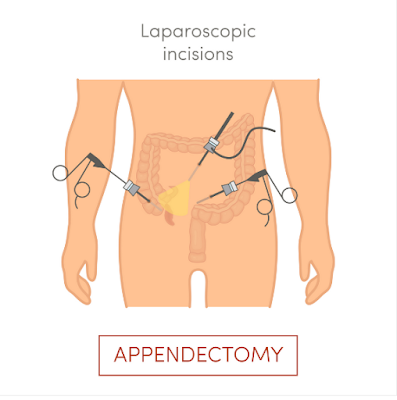Appendicitis is a medical condition that usually affects 5 to 7% of people between 10 to 30 years of age. The symptoms of appendicitis may first seem like indigestion. People sometimes feel nauseous or have diarrhea, which is accompanied by vomiting and fever.
The pain gets worse over time and usually occurs near the belly button or on the lower right side of the belly. Appendicitis needs to be treated on priority before it progresses into life-threatening conditions caused by the appendix burst.
Below are some facts about this seemingly unnecessary organ that causes so much trouble if left untreated.
Pain that stops isn’t always a good thing
Appendicitis is a common ailment in very young or older adults. It’s also more common in women, especially during pregnancy. Sometimes people may experience severe pain, but due to the appendix ruptures, the pain is relieved. However, this is only temporary pain relief. When appendix ruptures, fluids can seep into the abdomen and cause an infection called peritonitis, which can be life-threatening. A ruptured appendix requires immediate surgery to remove the tissue and to clean the abdominal cavity to prevent peritonitis.
You don’t need your appendix for daily functional activities
The appendix has been thought of as a useless leftover from the evolutionary process. Its function is not entirely clear. This organ may assist the body to fight against infection during early life, but it’s not a prominent organ. After an appendix removal surgery or an appendectomy, other organs like bowel, spleen, and, lymph nodes take over the infection-fighting work of the appendix, maintaining the ideal level of immunity. You will be able to carry out all your daily activities, after recovering from the surgery without any hindrance.
Most appendectomies are minimally invasive
Today, most appendectomies are laparoscopic procedures, using only smaller incisions and possibly a shorter recovery period compared to open surgery. Laparoscopic surgery provides a surgeon with better visualization and improved precision and accuracy during the procedure.
Experts recommend laparoscopic surgery in cases where the appendix is intact with no further complications. Open surgery is suggested in cases of appendix bursts where the infection has spread to the surrounding organs.
In capsule, you should always assess the pain in the abdomen and other common symptoms carefully before passing it off as a stomach bug. If detected on time, appendicitis can be treated with antibiotics alone.
Visit Us: drnikhilagnihotri.com
Blog Reviewed by: Dr. Nikhil Agnihotri
Mail Us: drnikhilslaparoscopy@gmail.com
Blog Reviewed by: Dr. Nikhil Agnihotri
Mail Us: drnikhilslaparoscopy@gmail.com
Book an appointment: drnikhilagnihotri.com/book-appointment













